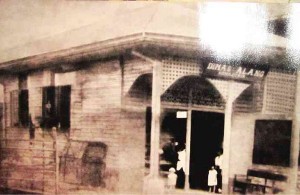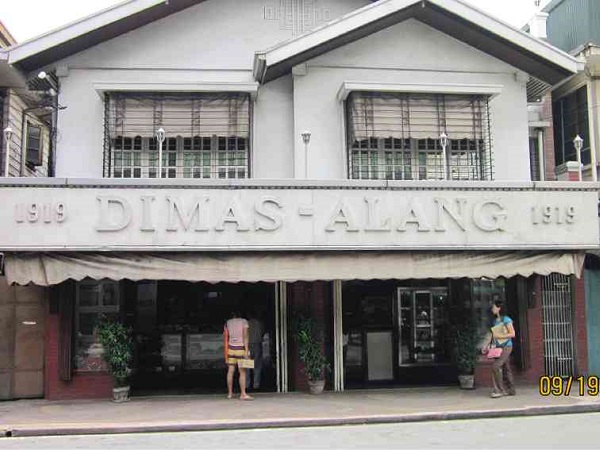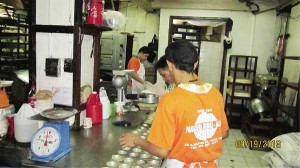Dimas-alang, 1919: ‘Historical’ bakery in old Pasig
The oldest business establishment in Pasig, then part of the province of Rizal, is Panaderia Dimas-alang, which began operations in 1919. The name itself is historical, as it was used by Rizal in his novel “Noli Me Tangere.”

RARE photo shows Dimas-alang during the early 1920’s period. Photo by Amadís Ma. Guerrero, Contributor
The bakeshop is now owned and managed by Manolo Lozada, who inherited it in 1980 when his mother Teresa passed away. The Lozadas are an old, artistically-gifted family from Pasig, and in music circles Manolo, a painter-printmaker and singer, is better known as the only brother of the late, great violinist Carmencita Lozada.
Manolo (whose wife Baby is an accomplished pianist), an English major from the University of the Philippines, describes himself as “a reluctant businessman and bakery owner.” And Dimas-alang is or used to be a “small-town bakery catering to the neighborhood.”
He has no idea of the initial investment in Dimas-alang, which actually evolved from a much earlier bakeshop, Dos Hermanos Panaderia, founded by relatives of the Lozada grandparents: “Pero napakaliit pa noong araw (investment was miniscule during those days).”
The bakery was “run of the mill” when he took over, but he and his sisters Carmencita and Teresita were intimately familiar with the place: “We grew up in the bakery. We knew the feel … and the people here now are descendants ng dating tauhan (the former employees).”
The entrepreneur-by-inheritance decided not to try anything radical to improve business. “I was not going to change its image,” Manolo says. “I tried to retain the old ones (products) like pan de sal and ensaymada. The innovations came with the onset of the baking schools, and we adapted a few of them—like brazo de mercedes.”
He recalls: “At first, business was slow. I was just getting by. And I would go back to the US every year. We added items like egg pie, and I just kept on. Eventually business picked up. Maganda ang business ngayon at dumami ang clientele (business is good now and customers have increased).”
By then Pasig had metamorphosed from a small provincial town to a modern big city, part of Metro Manila, with the districts close to Ortigas and Edsa filled with high-rise buildings, condominiums and upscale offices. Ricefields gave way to subdivisions.
“Everything contributed to Dimas-alang’s progress,” notes Manolo. “It was a result of demography, development.”
The bakeshop has a staff complement of over 30, enjoying full benefits like SSS, Pag-IBIG, PhilHealth, 13th month bonus, vacation leave and retirement pay. They invent or devise recipes, especially those using native goods like tamarind and bananas.
Dimas-alang, however, remains old-fashioned. While a few machines have been added, there is only one computer. As long as the money keeps rolling in, to paraphrase that line from the musical “Evita,” who cares? Manolo does not promote the business online, and the recent publicity over TV and the print media was all unsolicited.
“Our saving grace is that we kept on,” concludes Manolo. “At the start I managed by dint of … by feel. I revived old biscuits that I remembered. We stuck to tradition. We catered to the memory of people who lived here.”


